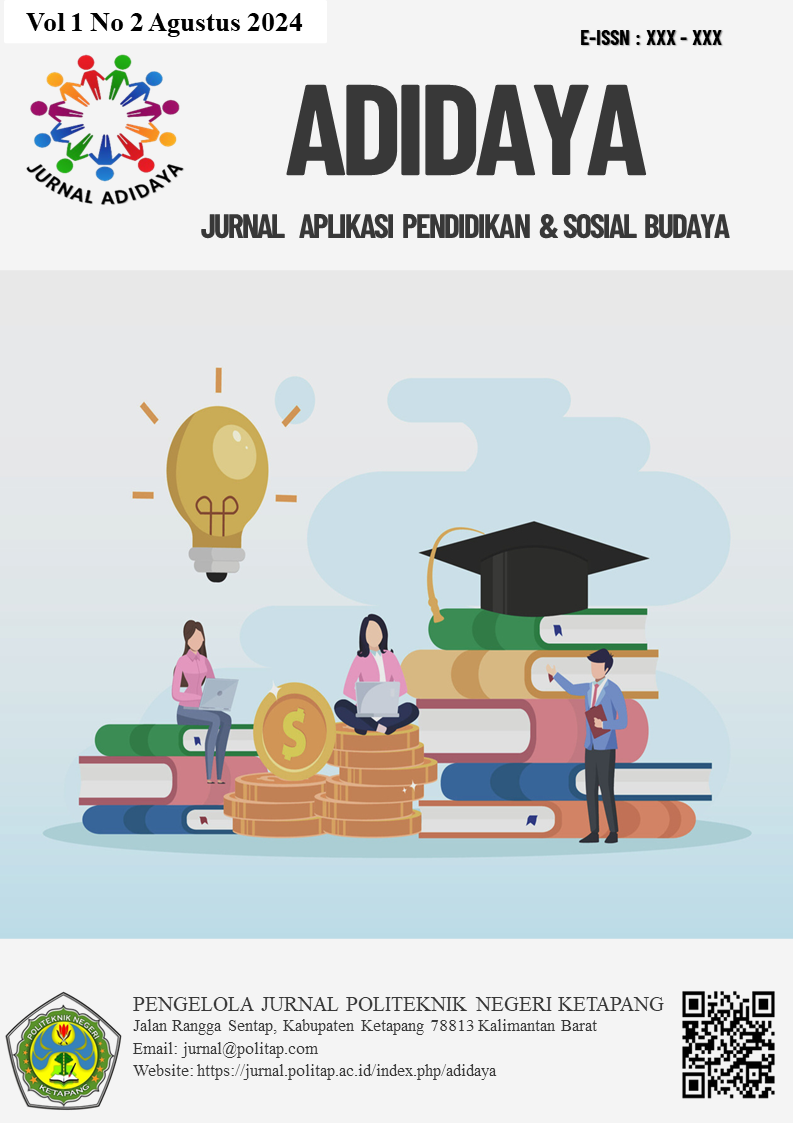ANALISIS KESULITAN MENDENGAR PADA SISWA KELAS IX SMP DARUDDA’WAH
DOI:
https://doi.org/10.58466/adidaya.v1i2.1541Keywords:
Analysis, Listening Difficulties, Students of Darudda’wah Junior High SchoolAbstract
This study aims to explore the difficulties faced by students in understanding English dialogue and the factors that influence it. In the context of language learning, listening skills have a crucial role because they affect students' ability to speak and interact. Qualitative descriptive methods are used to explain these phenomena, by collecting data through questionnaires to analyze students' answers. The results of the study showed that 84.3% of students experienced major difficulties in identifying the content of the message. Lack of vocabulary mastery, inability to guess words in the recording, and the length of the message conveyed are the main factors. In addition, 71.8% of students had difficulties with speakers. Some of the problems encountered include the inability to listen without pictures or videos, the speaker's speaking speed being too high, and the variety of accents in the recording. From these results, it can be concluded that good listening skills are an important foundation in language learning. Therefore, there is a need for a learning strategy that is more focused on vocabulary development and understanding of various accents in the context of dialogue. This can help improve students' knowledge and respond to English conversations more effectively. The conclusion can be the basis for developing a more effective learning program in improving students' listening skills.
Downloads
References
(Arikunto 2006). Basic of Learning Theory (Behaviorism, Cognitivism, Constructivism, and Humanism). International Journal of Asian Education, 1 (1): 37-42.
Asmawati (2017). Prosedur Penelitian : Suatu Pendekatan Praktik. Jakarta: Rineka Cipta.
Azmi Bingol, M., Celik, B., Yildiz, N., & Tugrul Mart, C. (2014). LISTENING Comprehension Difficulties Encountered By Students In Second Language Learning Class. In Journal Of Educational And Instructional Studies In The World.
Chastain (1971). The Importance of English Language. International Journal on Orange Technologies, 02 (01): 22-24.
Dumont, H., Istance, D., & Benavides, F. (2010). The Nature of Learning. Paris: OECD Library.
Goh, C. (1999). Teaching Listening in the Language Classroom. Singapore: SEAMEO Regional Language Centre.
harry and Walter (1992:4). The Motivation of Learners of English as a Foreign Language Revisited. International Education Studies, 6 (10): 90-101.
Hermawan (2012). Teaching Productive Skills to the Students: A Secondary Level Scenario. Thesis tidak diterbitkan. Dhaka: Master of Arts in English.
Lauder, A. (2008). The Status and Function of English in Indonesia: A Review of Key Factors. Makara, Sosial Humainora, 12 (1): 9-20.
Merdhana (1987). Pragmatism : A learning theory for the future. London: Routledge.
Muhajir, N. (1998). Metodologi Penelitian Kualitatif Pendekatan Positivistik, Rasionalistik, Phenomenologik, dan Realisme Metaphisik Telaah Studi Teks dan Penelitian Agama. Kota Yogyakarta: OPAC Perpustakaan Universitas Kristen duta Wacana.








 This journal has been indexed by:
This journal has been indexed by:

